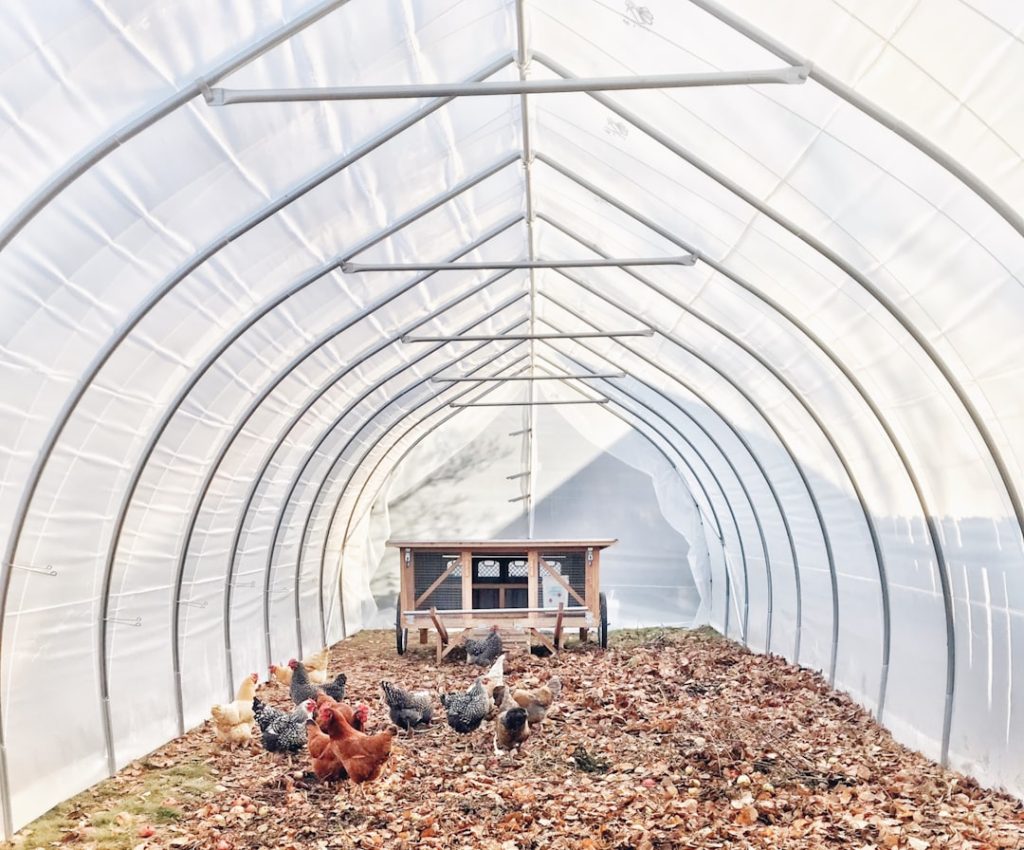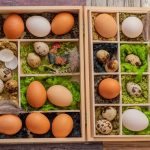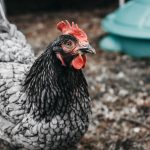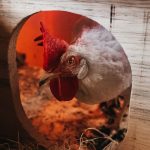When selecting a chicken breed, several factors should be considered. The primary consideration is the intended purpose: egg production, meat production, or dual-purpose. Breeds such as Rhode Island Red and Leghorn are renowned for their high egg-laying capacity, while Cornish Cross and Plymouth Rock are often preferred for meat production.
Climate and environment play a crucial role in breed selection. Some breeds are better adapted to cold weather, while others thrive in warmer climates. Temperament is another important factor, especially for families with children.
Certain breeds are known for their docile and friendly nature, while others are more independent and less social. It is essential to conduct thorough research on various breeds, taking into account these factors, before making a decision. This approach ensures that the chosen breed aligns with the specific needs and circumstances of the chicken keeper.
Table of Contents
- 1 Creating a Safe and Comfortable Coop
- 2 Feeding and Watering Your Chickens
- 3 Providing Proper Health Care and Maintenance
- 4 Handling and Socializing with Your Chickens
- 5 Managing Egg Production and Collection
- 6 Dealing with Common Challenges and Predators
- 7 FAQs
- 7.1 What are the basic requirements for keeping chickens in the UK?
- 7.2 Do I need a license to keep chickens in the UK?
- 7.3 What should I feed my chickens in the UK?
- 7.4 How do I protect my chickens from predators in the UK?
- 7.5 What are the common health issues for chickens in the UK?
- 7.6 What are the legal requirements for keeping chickens in the UK?
Key Takeaways
- Consider the space available, climate, and purpose for raising chickens when choosing the right breed for your needs
- Ensure the coop is secure from predators, well-ventilated, and provides enough space for the number of chickens you plan to raise
- Provide a balanced diet with access to fresh water and monitor for any signs of illness or distress in your chickens
- Regularly check for parasites, provide vaccinations, and maintain a clean living environment for your chickens’ health and well-being
- Spend time handling and socializing with your chickens to build trust and reduce stress, which can also help with egg production
Creating a Safe and Comfortable Coop
Designing the Coop
When designing your coop, it’s essential to consider factors such as ventilation, insulation, and predator-proofing. The coop should provide protection from predators and the elements, as well as enough space for the chickens to move around and roost comfortably.
Key Features of a Safe Coop
Proper ventilation is crucial to prevent moisture buildup and ensure good air quality inside the coop. Insulation can help regulate the temperature inside the coop, keeping the chickens comfortable in both hot and cold weather. Additionally, it’s vital to make sure that the coop is secure and predator-proof, with sturdy walls and a secure door to keep out unwanted visitors.
Providing Comfortable Amenities
In addition to the physical structure of the coop, it’s essential to provide the chickens with comfortable nesting boxes and roosting bars. Nesting boxes should be lined with clean bedding and placed in a quiet, secluded area of the coop to provide a safe and comfortable space for the hens to lay their eggs. Roosting bars should be placed at different heights to accommodate the chickens’ natural instinct to perch at night.
By creating a safe and comfortable coop, you can ensure that your chickens are happy and healthy.
Feeding and Watering Your Chickens
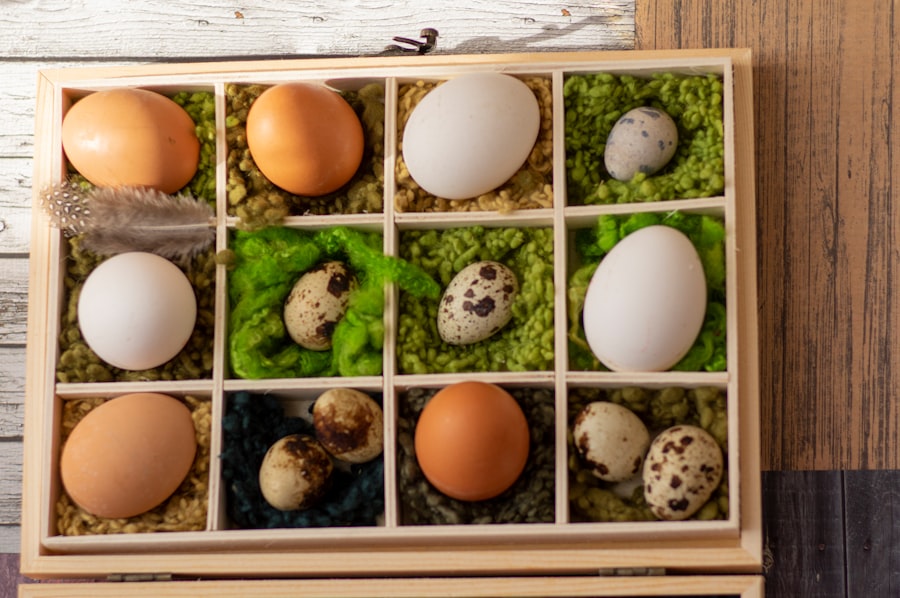
Feeding and watering your chickens is an essential part of caring for them. A well-balanced diet is crucial for their overall health and productivity. When it comes to feeding your chickens, it’s important to provide them with a high-quality commercial feed that is specifically formulated for their age and purpose.
For example, chicks require a different type of feed than laying hens or broilers. In addition to commercial feed, it’s important to supplement their diet with fresh fruits and vegetables, as well as grit and oyster shells to aid in digestion and eggshell production. In addition to providing a balanced diet, it’s important to ensure that your chickens have access to clean and fresh water at all times.
Water is essential for their overall health and egg production. It’s important to regularly clean and refill their waterers to prevent the buildup of bacteria and algae. In colder climates, it’s important to prevent their water from freezing by using heated waterers or regularly replacing frozen water with fresh water.
By providing your chickens with a well-balanced diet and access to clean water, you can ensure that they are healthy and productive.
Providing Proper Health Care and Maintenance
Proper health care and maintenance are essential for keeping your chickens healthy and productive. Regular health checks are important to monitor their overall well-being and catch any potential issues early on. It’s important to regularly inspect your chickens for signs of illness or injury, such as lethargy, abnormal droppings, or changes in behavior.
Additionally, it’s important to keep an eye on their feet and legs for signs of bumblefoot or other foot problems. In addition to regular health checks, it’s important to provide your chickens with proper vaccinations and parasite control. Vaccinations can help protect your chickens from common diseases such as Marek’s disease or Newcastle disease.
Additionally, regular deworming and parasite control are essential for preventing infestations of internal and external parasites such as worms, mites, and lice.
Handling and socializing with your chickens is an important part of building a strong bond with them and ensuring that they are comfortable around humans. It’s important to handle your chickens gently and calmly from a young age to help them become accustomed to human interaction. Spending time with your chickens can help them become more friendly and less skittish around you.
In addition to handling your chickens, it’s important to provide them with opportunities for socialization within their flock. Chickens are social animals that thrive in a group environment. Providing them with enough space to move around freely and interact with each other can help reduce stress and aggression within the flock.
Managing Egg Production and Collection
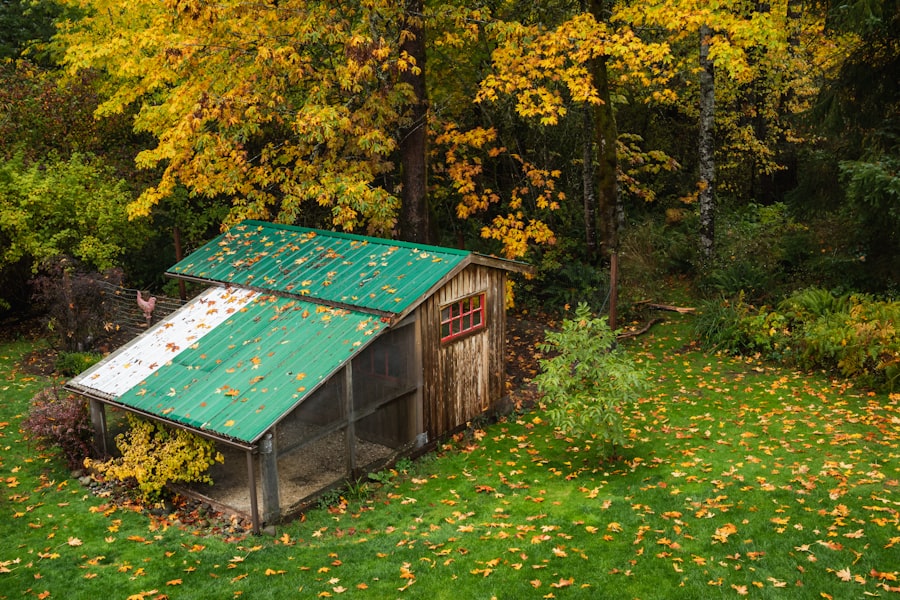
Creating a Comfortable Laying Environment
Managing egg production and collection is a crucial aspect of raising chickens for eggs. It’s essential to provide your hens with a comfortable and quiet space for laying eggs, such as nesting boxes lined with clean bedding.
Regular Egg Collection and Inspection
In addition to providing a suitable laying environment, it’s vital to collect eggs regularly to prevent them from being pecked or broken by other hens. This also allows for early detection of any issues with the eggs.
Proper Storage and Handling of Eggs
Proper storage and handling of eggs are critical to ensuring their freshness and quality. Eggs should be collected daily and stored in a cool, dry place away from direct sunlight. Regular inspection of eggs for any signs of cracks or damage is also necessary before consuming or selling them.
Dealing with Common Challenges and Predators
Dealing with common challenges and predators is an inevitable part of raising chickens. It’s important to be proactive in protecting your flock from potential threats such as predators like foxes, raccoons, or birds of prey. Securing the coop with sturdy fencing and locks can help prevent predators from gaining access to your chickens.
In addition to predators, it’s important to be prepared for common health issues that may arise in your flock, such as respiratory infections or egg binding. It’s important to have a basic understanding of common chicken health issues and know when to seek veterinary care if necessary. In conclusion, raising chickens can be a rewarding experience when done properly.
By choosing the right breed for your needs, creating a safe and comfortable coop, providing proper nutrition and health care, handling and socializing with your chickens, managing egg production, and being prepared for common challenges and predators, you can ensure that your flock is happy, healthy, and productive.
If you’re interested in learning more about how to keep chickens in the UK, you may also want to check out this article on creating the perfect chicken coop and country diner. This article provides valuable information on how to set up a comfortable and functional living space for your chickens, ensuring they are happy and healthy.
FAQs
What are the basic requirements for keeping chickens in the UK?
In the UK, basic requirements for keeping chickens include a suitable coop or housing, access to a secure outdoor area, and proper feeding and watering facilities.
Do I need a license to keep chickens in the UK?
You do not need a license to keep chickens in the UK, but you must adhere to certain regulations and guidelines set by the government and local authorities.
What should I feed my chickens in the UK?
Chickens in the UK should be fed a balanced diet that includes a mixture of commercial poultry feed, grains, and fresh fruits and vegetables. It’s important to provide access to clean water at all times.
How do I protect my chickens from predators in the UK?
To protect chickens from predators in the UK, it’s important to secure their coop with strong fencing, locks, and predator-proofing measures. Additionally, providing a secure outdoor area and supervising free-range time can help deter predators.
What are the common health issues for chickens in the UK?
Common health issues for chickens in the UK include respiratory infections, parasites, and egg-laying problems. It’s important to monitor the health of your chickens regularly and seek veterinary care when necessary.
What are the legal requirements for keeping chickens in the UK?
In the UK, legal requirements for keeping chickens include registering your flock with the Department for Environment, Food & Rural Affairs (DEFRA), following welfare guidelines outlined in the Animal Welfare Act, and complying with local zoning and planning regulations.
Meet Walter, the feathered-friend fanatic of Florida! Nestled in the sunshine state, Walter struts through life with his feathered companions, clucking his way to happiness. With a coop that’s fancier than a five-star hotel, he’s the Don Juan of the chicken world. When he’s not teaching his hens to do the cha-cha, you’ll find him in a heated debate with his prized rooster, Sir Clucks-a-Lot. Walter’s poultry passion is no yolk; he’s the sunny-side-up guy you never knew you needed in your flock of friends!

